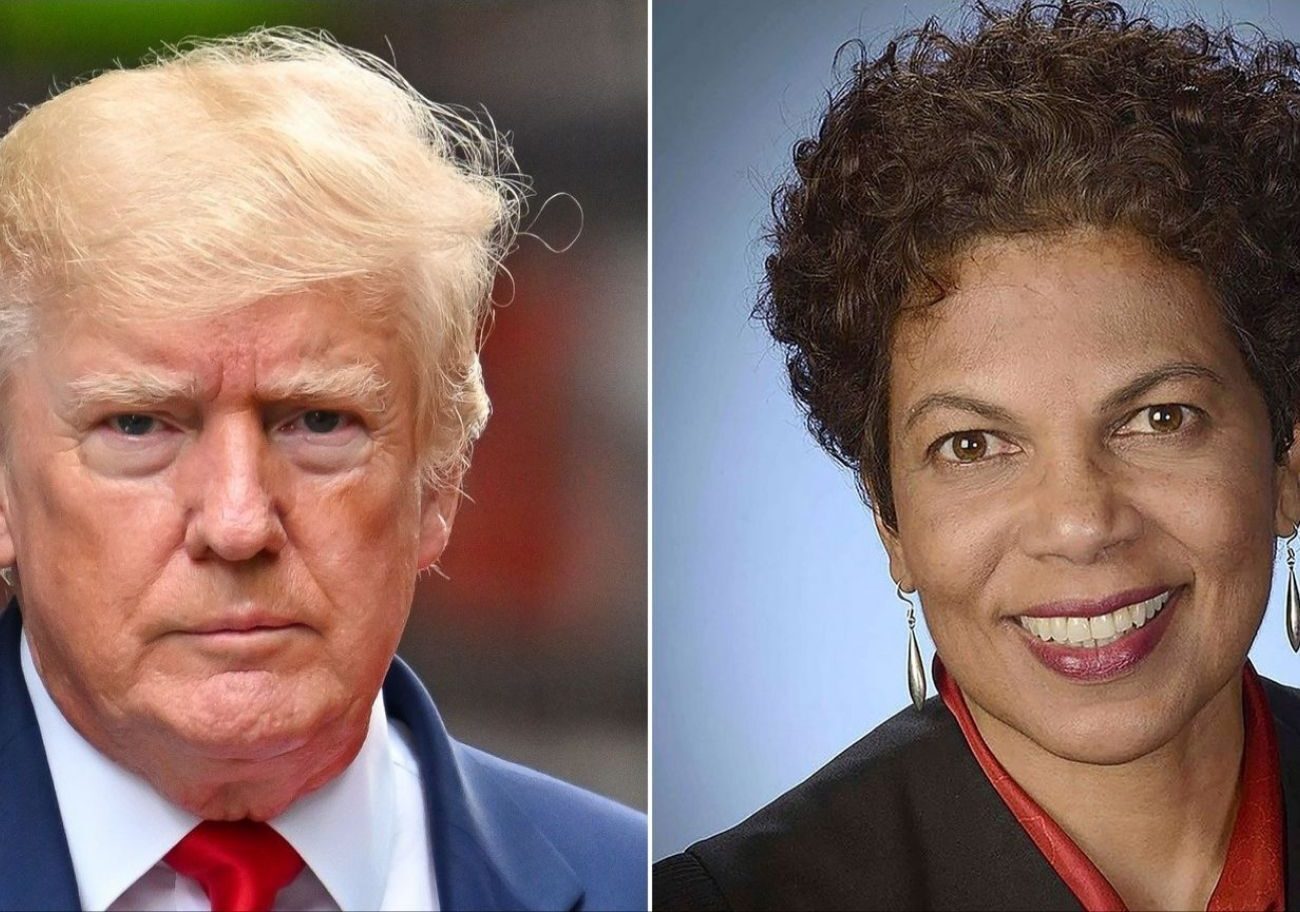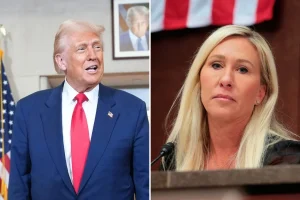The legal aftermath of the January 6, 2021, Capitol breach continues to unfold in federal courts, as a Texas defendant’s request for a restitution refund was recently denied by a federal judge. The decision highlights ongoing debates about the intersection of presidential pardons, judicial authority, and restitution obligations, particularly in cases involving participants in the January 6 events who have received clemency from President Donald Trump.
U.S. District Judge Tanya Chutkan, an appointee of former President Barack Obama, rejected the latest request for reimbursement, following a series of similar rulings from other judges in Washington, D.C. The case centers on Stacy Hager, 61, a Texas resident who was convicted in 2023 on four misdemeanor charges related to the Capitol breach. Hager sought a refund of $570 in restitution paid prior to receiving a presidential pardon.
Federal prosecutors acknowledged that Hager’s request was unusual but supported it, noting that in some cases where convictions were vacated or pardoned, retaining the restitution funds may not be warranted. Nonetheless, Chutkan denied the request, citing precedent and referencing three prior rejections in her district. Her order emphasized that pardons, while absolving criminal liability, do not automatically entitle defendants to recover fines or restitution already paid.
“At least three other judges in this district have denied similar motions where defendants sought reimbursement for fines and fees associated with their now pardoned criminal convictions,” Chutkan wrote in her three-page order. “The government concurs, acknowledging that pardons generally do not ‘make amends for the past’ nor do they afford relief for what has been suffered by the offender, but it takes the curious position that in this ‘unusual situation,’ reimbursement is appropriate.”
The legal rationale draws on longstanding Supreme Court precedent, particularly the 1877 decision in Knote v. United States, which established that a pardon is “an act of grace” that does not restore rights or property previously vested in others as a result of a conviction. According to the ruling, once restitution has been paid, it cannot automatically be reclaimed by the pardoned individual absent explicit statutory authorization from Congress.
Chutkan’s decision aligns with similar rulings from Chief U.S. District Judge James Boasberg, along with Judges Royce Lamberth and Randolph Moss, who have consistently denied restitution refund requests from other January 6 defendants. These cases include a Maryland couple seeking approximately $1,000 in restitution, a pardoned former U.S. Marine from New Jersey, and John Sullivan, a Utah defendant. In each instance, the courts emphasized that pardons absolve criminal liability but do not reverse financial obligations previously assigned by law.
The case also illustrates the unusual legal posture of some January 6 convictions under the Trump administration. Hager was among more than 1,500 individuals granted clemency by President Trump during his second term, which began in January 2025. In Hager’s case, the pardon was accompanied by a vacatur of his convictions while under appeal—a rare step that led the Justice Department to argue that the funds collected through restitution no longer had a legal basis for retention. Despite this argument, the court maintained that prior payments could not be refunded without congressional authorization.
Assistant U.S. Attorney Adam Dreher noted in court filings that Hager’s conviction had been “invalidated” when the D.C. Circuit vacated it, suggesting a legal anomaly compared to standard pardons. Nonetheless, Chutkan concluded that even in this context, the court lacked authority to direct the refund. “A pardoned individual is not entitled to payments that have already been deposited into the United States Treasury, absent congressional authorization to withdraw the funds,” she wrote, referencing the Knote precedent.
The broader implications of these rulings have stirred political debate. Democrats criticized the Trump pardons, arguing they undermine accountability for participants in the January 6 events. Conversely, some Republicans have highlighted what they view as disproportionate penalties applied to defendants under the Biden Justice Department, particularly for low-level misdemeanor offenses. These contrasting perspectives underscore the continued partisan division surrounding the legal and political aftermath of January 6.
The issue of restitution also raises practical questions for federal courts and the Justice Department. Courts must balance respect for presidential clemency powers with adherence to established legal principles governing fines, fees, and restitution. In cases where convictions have been vacated or pardoned, the government may determine that retaining collected funds is no longer necessary. However, judges have repeatedly emphasized that the courts cannot unilaterally authorize refunds, reaffirming the principle that pardons do not retroactively reverse financial obligations.
Chutkan’s ruling also illustrates the judicial system’s cautious approach to novel legal claims. While the Justice Department described Hager’s case as “unique,” the court relied on historical precedent to guide its decision. By referencing multiple prior cases within the district, the ruling reinforces consistency in handling restitution requests from January 6 defendants. This approach helps maintain predictability in federal financial obligations and underscores the limits of judicial authority in matters involving presidential pardons.
The Trump pardons, particularly those involving January 6 defendants, remain a focal point of legal and political discussion. Critics contend that sweeping clemency undermines deterrence and accountability, while supporters argue that pardons correct perceived excesses or unfair prosecutions. Within this context, cases like Hager’s highlight the complex interplay between executive clemency, judicial review, and statutory restitution requirements.
In addition to legal implications, these rulings influence public perception of accountability and the rule of law. Courts are often called upon to navigate politically sensitive issues while adhering to established legal frameworks. Chutkan’s decision, along with similar rulings, reflects the judiciary’s effort to apply consistent standards, even in cases involving high-profile political figures or contentious events.
Looking forward, the rulings set a precedent for how federal courts may handle restitution requests from pardoned defendants, particularly those whose convictions have been vacated or otherwise invalidated. Legal experts note that future claimants will likely face similar hurdles, as courts continue to rely on the distinction between pardons, which relieve criminal liability, and the separate legal obligations imposed through restitution orders.
While Hager’s request for a refund was denied, the case underscores the ongoing legal complexity surrounding January 6 prosecutions and presidential clemency. For scholars, policymakers, and the public, these developments offer insight into the boundaries of executive power, judicial authority, and the enduring role of restitution in the federal criminal justice system.
In conclusion, Judge Chutkan’s dismissal of the restitution refund request reaffirms the principle that presidential pardons do not automatically entitle recipients to recover financial penalties already paid. The decision aligns with prior rulings in the district and underscores the limits of judicial authority in ordering refunds. As the legal and political ramifications of the Trump pardons continue to unfold, federal courts will remain a critical arena for navigating the intersection of clemency, accountability, and restitution obligations.

Emily Johnson is a critically acclaimed essayist and novelist known for her thought-provoking works centered on feminism, women’s rights, and modern relationships. Born and raised in Portland, Oregon, Emily grew up with a deep love of books, often spending her afternoons at her local library. She went on to study literature and gender studies at UCLA, where she became deeply involved in activism and began publishing essays in campus journals. Her debut essay collection, Voices Unbound, struck a chord with readers nationwide for its fearless exploration of gender dynamics, identity, and the challenges faced by women in contemporary society. Emily later transitioned into fiction, writing novels that balance compelling storytelling with social commentary. Her protagonists are often strong, multidimensional women navigating love, ambition, and the struggles of everyday life, making her a favorite among readers who crave authentic, relatable narratives. Critics praise her ability to merge personal intimacy with universal themes. Off the page, Emily is an advocate for women in publishing, leading workshops that encourage young female writers to embrace their voices. She lives in Seattle with her partner and two rescue cats, where she continues to write, teach, and inspire a new generation of storytellers.









